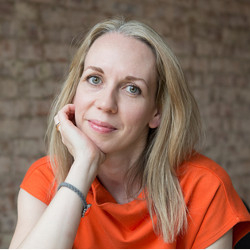Playwright Sarah Rutherford: 'Middle-class, mixed-race families are invisible on our stages'
As her new play ”Adult Supervision” premieres at the Park Theatre, playwright Sarah Rutherford discusses multiculturalism in modern Britain

What’s Adult Supervision about?
It’s set in 2008 and it’s about a white ex-lawyer, Natasha, who’s adopted two children from Ethiopia. As a parent who likes to do things by the book, she’s decided that it’s important for the kids to get to know the handful of other ‘children of colour’ at their very smart private school. Natasha seizes on the opportunity of the US election to invite the mothers of these children to a drinks party, but things start to go awry as the Obamatinis flow and inhibitions are shed.
Why did you set it on the night of Obama’s election?
I have such vivid memories of that night, and although it was historic for everyone, I think many communities – ‘parents of children of colour’ being one – took it as a kind of personal victory. It was an incredibly heady moment – suddenly anything seemed possible – and it’s an interesting time to look back on from the perspective of today, when the US seems to be going into meltdown and November 2008 looks like an almost innocent time.
Would you describe it as a comedy?
Yes – a comedy drama. But the laughs in it come mostly from character, from truth (truths you may not have heard spoken out loud before) and from discomfort, rather than from gags.
How has your personal experience influenced and shaped the play?
Hugely. I’m married to a man of Jamaican origin and am the mother of two amazing mixed-race children, although they go to a much more diverse school than the one in the play. Some of the more jaw-dropping dialogue in the play is actually pretty much verbatim stuff that has been said to me over the years; other material has come from things that I’ve thought or sensed but that have gone unsaid.
Do you think theatre has been shy addressing issues of multiculturalism?
I guess I’ve become very used to seeing certain issues addressed in relation to race: drugs, gangs, all that. Of course they’re more than valid subjects for drama, but what I don’t see on stage is people like me and my friends and family. When there was an outcry about Danny Boyle‘s depiction of a happy, educated, middle-class mixed-race family in the Olympic ceremony, I was aghast at the claims that such families don’t exist. We’re probably one of the fastest-growing demographics in the country; yet we’re pretty much invisible in the media and especially on stage.
How did the staged reading at Stratford East help you develop it?
It was invaluable. Team Angelica at Stratford East take you through quite a rigorous series of ‘table reads’ and rewrites before putting your work in front of an audience. I thought I was already quite good at cutting my own work, but the mentors I had there were quite ruthless about slashing chunks out where necessary, and it’s a much better play as a result. I also had some brilliantly frank discussions about race with actor Rakie Ayola and director Dawn Reid, both of whom contributed a lot to the development of Angela, ‘the only black in the village’.
How did you get into playwriting in the first place?
When I was working as an actor, I took part in a three-day workshop that turned out to
involve a lot of writing. I ended up writing a scene that was so well received that it gave me the confidence to take the bull by the horns and turn it into a full-length piece. Since then I seem to have gradually morphed from actor into writer, and it’s a progression that feels right for me.
Could you describe your role as ‘writer in residence’ at the Park?
As writer in residence I’ve written a play, Allah in Neon, set in Park Theatre’s locality. This was researched over six months with a team of actors who went out into the N4 area and found stories and characters which they then brought back to weekly workshops and experimented with. From that I found a story set in Finsbury Park’s Turkish community and flew to Turkey to research it further. Allah in Neon will be produced at Park next year.
What else are you working on currently?
I’m continuing to develop my first play What You Do To People, a much darker piece about power and abuse which has had a long gestation. I also have a slightly bonkers feminist comedy brewing in my head, based on a monologue called La Barbe which I wrote last year.
Who are your writing heroes?
Brilliant female playwrights like Laura Wade and April de Angelis who are blazing a trail for the rest of us.
Adult Supervision runs at the Park Theatre until 3 November












